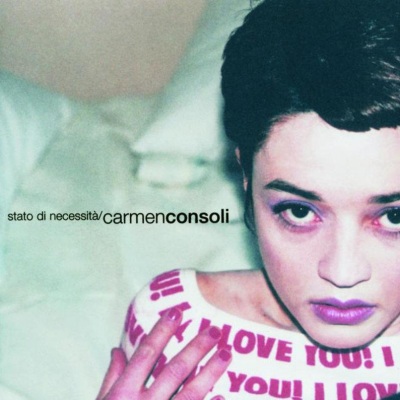
Stato di Necessità
by Marisa BrownFresh off the heels of her 1998 release Mediamente Isterica, Carmen Consoli was back in the studio to record her fourth album, Stato di Necessità, eager to continue the blend of irony, sentimentalism, subtle perceptiveness, poetic lyrics, and '60s-Europop-meets-late-'90s-American-rock guitars she had begun to develop on her third record. Lyrically Stato di Necessità speaks mainly in the first person, but the approach changes from intimate introspection ("Novembre '99 [L'Isola del Tesoro]"), to detached observance ("Equilibrio Precario"), to freely expressed desire ("Bambina Impertinente"), giving listeners a well-rounded, or least multifaceted, perspective of the singer. The same kind of diversity is found in Consoli's music, which can be sensual, edgy, melancholic, hopeful, or a combination of everything, depending on the emotions she wishes to convey. But nothing is overdone: Consoli is a master of descriptive minimalism, using just a few lines and well-placed guitar riffs (either from herself or from longtime bandmember Massimo Roccaforte) to describe an entire situation. "L'Ultimo Bacio," which was also used in the 2001 film of the same name, is one of the most popular songs in Consoli's repertoire, and rightfully so. It's a gorgeous piece, with a bittersweet guitar line, aching strings, and subtle, plaintive lyrics about acknowledging the departure of youth. Equally good is "Orfeo" (an acoustic version of which is hidden 20 minutes into the final track), whose simple opening guitar riff is one of those that just begs to be listened to again and again. There are a few pieces that don't deserve such praise, "Il Sultano (Della Kianca)" for example, with clichéd effects and lyrics bordering on superficial, but overall Stato di Necessità is the work of a mature musician who is confident about her sound and her artistic vision and able to convey it to the world.
